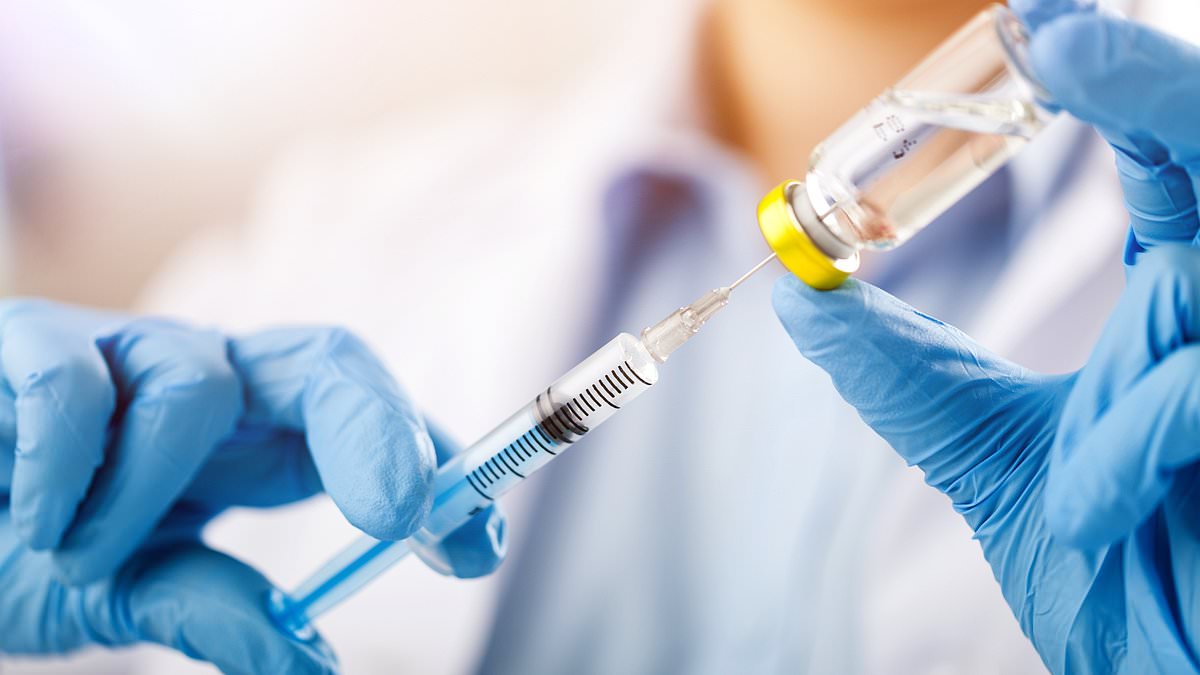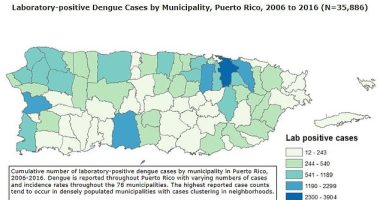
A skin cancer vaccine being trialled by the NHS can halve the risk of dying or the disease returning, new results show.
In the longest study on the treatment yet, melanoma patients given the personalised vaccine alongside the immunotherapy drug Keytruda were half more likely to be alive three years later.
The risk of cancer returning and death dropped by 49 per cent compared to patients who were just taking Keytruda alone, which is the current standard of care.
Experts said they ‘fully expect’ similarly impressive results in trials of cancer vaccines on other cancers, including breast and bowel.
Developed by pharma giants Moderna and MSD, the vaccine is custom-built for individuals using the specific genetic makeup of their tumour — giving it the best chance of a cure.
Injected in patients after they have undergone surgery, it works by telling the body to hunt down cancer cells and prevent the deadly disease from coming back.
The trial involved 157 patients with stage 3 or 4 of the deadliest type of skin cancer, with findings presented at the American Society of Clinical Oncology (ASCO) conference in Chicago.
Three-quarters (75 per cent) who had received the vaccine plus Keytruda were cancer free after 2.5 years compared to 56 per cent who only received standard treatment.
It comes as University College London Hospitals NHS Foundation Trust (UCLH) is leading final phase of trials of the therapy, which scientists hope could also be used to stop lung, bladder and kidney cancer.
Iain Foulkes, executive director of research and innovation at Cancer Research UK, said the findings add to the ‘exciting, developing landscape of cancer vaccine research’.
He said: ‘The results show positive signs of the mRNA vaccine’s long-lasting effectiveness.
‘After three years of follow up, the data suggests that levels of cancer relapse did not increase in people with high-risk, advanced stage melanoma.
‘The findings highlight the great promise of therapeutic cancer vaccines used in combination with powerful immunotherapies.
‘Trials in the UK are also investigating similar vaccine technology for use in colorectal cancer after surgery.’
The combined treatment is not yet available routinely on the NHS, outside of clinical trials.
But in April, Stéphane Bancel, Moderna’s director general, said he believed an mRNA vaccine for melanoma could be available in 2025.
The UCLH phase-three global trial will include a wider range of patients and researchers are hoping to recruit around 1,100 people.
At least 60 to 70 patients across eight UK centres — including in London, Manchester, Edinburgh and Leeds — are set to be recruited.
A second trial presented at the conference in Chicago found that cancer vaccines can significantly improve survival for breast cancer patients after surgery.
Led by a team at the University of Vienna and involving 400 patients with early-stage breast cancer the vaccine – tecemotide – increased survival chances by 16 per cent, compared with those given standard care.
Use of the drug, used to stimulate the immune system before surgery, saw 81 per cent of patients alive seven years later, compared to 65 per cent who were on existing drugs.
Lead author Dr Christian Singer said the vaccine ‘markedly improved distant-recurrence free survival and overall survival’.
He added: ‘This is the first significant and profound long-term survival benefit of an anti-cancer vaccine in breast cancer patients reported to date.’
Source: Mail Online





